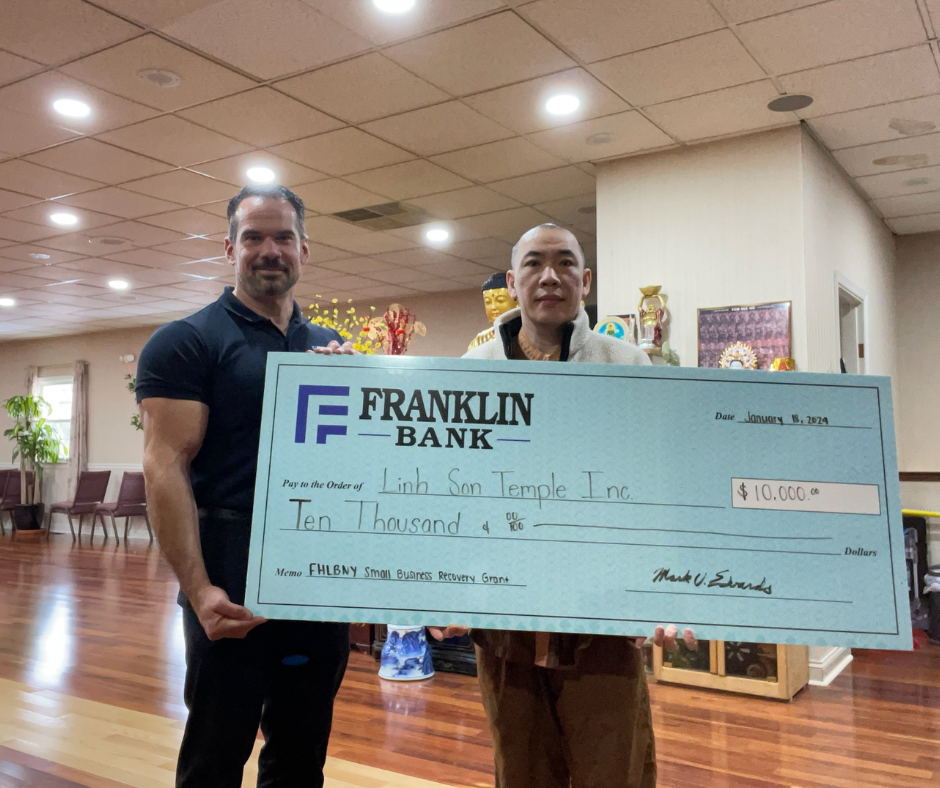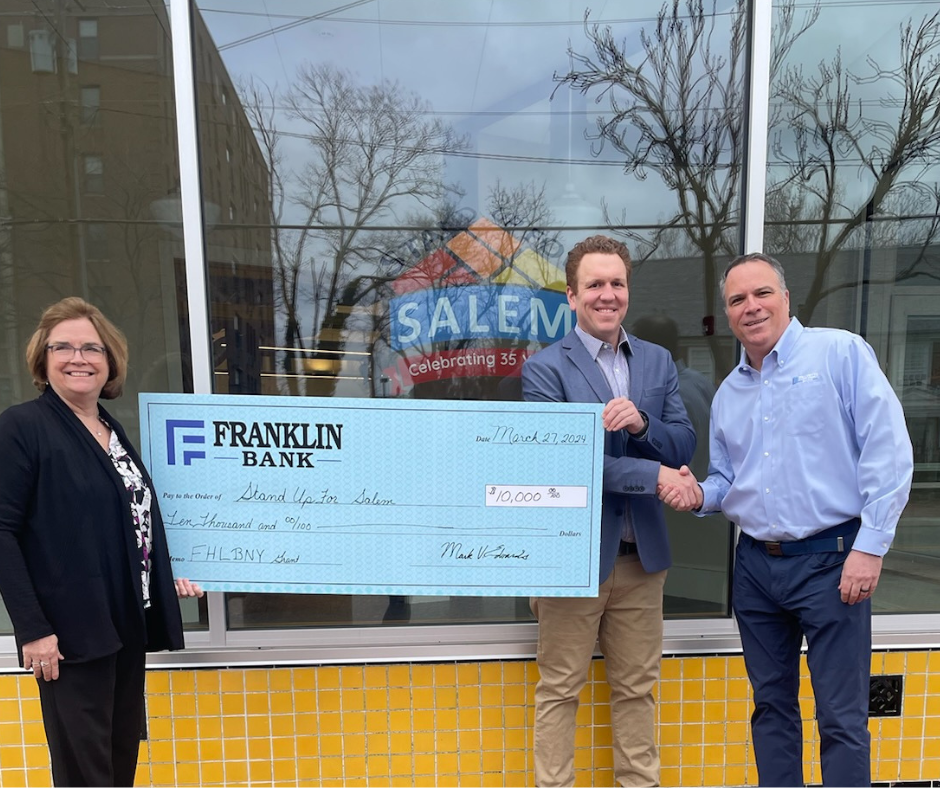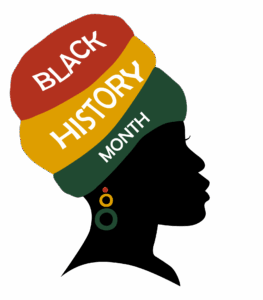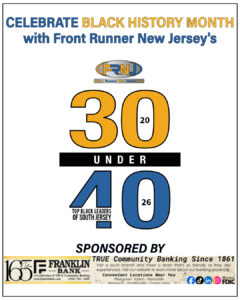Franklin Bank Awards Checks to Linh Son Temple, Stand Up for Salem

Presenting the check to Linh Son Temple Inc. is Michael Mikstas, vice president and commercial loan officer for Franklin Bank. Photo courtesy of Franklin Bank.
AC JosepH Media
WOODSTOWN — Franklin Bank recently announced that it presented checks for $10,000 to the Linh Son Temple, in Mantua, and Stand Up for Salem, as part of the New Jersey Neighborhood Revitalization Tax Credit Program.
The program was created to foster the revitalization of New Jersey’s distressed neighborhoods. Kimberly Cruz, senior vice president of IT and administration officer said that the bank submitted both organizations to the state for review and were both approved.
Linh Son, a Buddhist temple located at 212 Taylor Avenue in Mantua, was established in 1998 and is located on a large campus of land by the local Vietnamese community, according to a statement on the Thap Nhang website.
Linh Son Temple Mantua Township is a popular destination for those seeking peace and tranquility. The monastery and worship hall are beautifully and spiritually arranged, attracting many tourists to visit and pray.
In addition, the temple also organizes ceremonies and spiritual activities such as meditation and Dharma courses to help people understand more about Buddhism and find fulfillment and happiness in life.

Stand Up for Salem is a nonprofit that seeks to stimulate local business opportunities, champion historic preservation, and cultivate positive community growth to improve the lives of those who live and work in the City of Salem.
The Neighborhood Revitalization Tax Credit program has become one of the most successful public/private programs furthering community development and neighborhood change in New Jersey in 2002.
Administered by the state’s Department of Community Affairs, the program is designed to revitalize New Jersey’s distressed neighborhoods. NRTC offers business entities a 100% tax credit against various New Jersey state taxes.
Credits are provided to business entities that invest in revitalizing low- and moderate-income neighborhoods in eligible cities. Sixty percent of the tax credit funds must be used for activities related to the development of housing and economic development.
The remaining balance may be used for complementary activities such as the provision of assistance to small businesses, removing barriers to self-sufficiency, and promoting the integration of mixed-income neighborhoods.
NRTC funds are used by neighborhood-based non-profit organizations that have prepared, submitted and received approval from the Department for a revitalization plan for the neighborhood it serves.
Follow Us Today On:
Note from AC JosepH Media: If you like this story and others posted on Front Runner New Jersey.com, lend us a hand so we can keep producing articles like these for New Jersey and the world to see. Click on SUPPORT FRNJ and make a contribution that will go directly in making more stories like this available. Thank you for reading!





